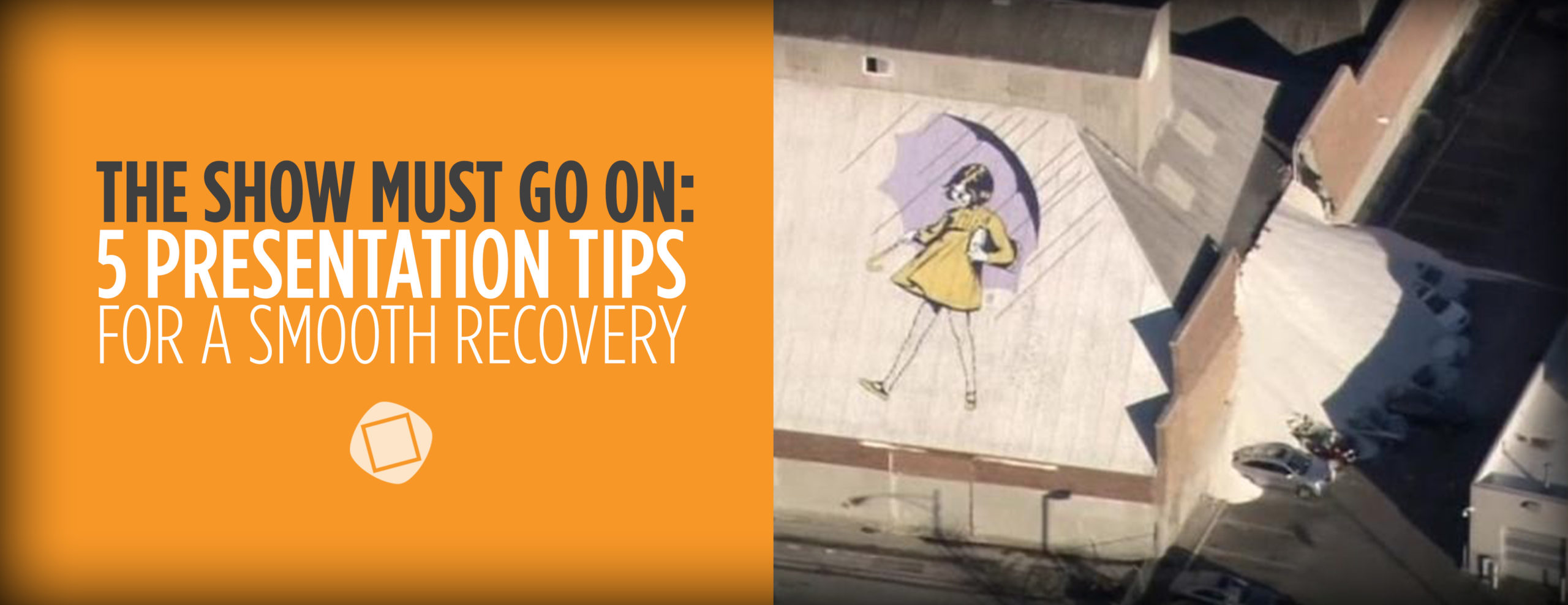As a Chicago company, SquarePlanet is well aware of the misfortune that has struck the Morton Salt facility on Goose Island and neighboring McGrath Acura early this week. If you’re not familiar, take a moment to learn about the spill. In a nutshell, an exterior wall of the Morton Salt facility collapsed, pouring an impressive amount of salt onto a group of vehicles directly below. Luckily, no one was injured, and the damage was relatively contained.
Naturally, as soon as the wall went down, all eyes and ears went to Morton for their response. How would they handle this moment? How quickly and effectively could they respond and recover?
At SquarePlanet, we think of every moment, even this moment, as a presentation. What Morton has in the aftermath of this crisis is an opportunity to communicate and connect with their audience. Whether we’re talking about message strategy or presentation tips, we’re firm believers that every opportunity should be maximized—we talk about it often on our podcast. All of this begs the question: how would we recover from this mishap if we were Morton Salt?
In the presentation world, mistakes are bound to happen. As we prepare our clients for the presentation of a lifetime, we spend considerable time training them to recover from mishaps as gracefully possible. The more we read about the incident at the Morton Salt plant, we realized the recommendations we would offer Morton are the same presentation tips give our clients.
5 Presentation Tips for a Smooth Recovery
1. Expect the Unexpected
Clickers will fail, flash drives will flounder, and sometimes walls crumble. You can’t control everything—what you do control is your reaction. When something unexpected happens, it’s very easy to get angry at the problem. If you get flustered, you risk losing your audience. If you can expect the unexpected, a bump in the road won’t stop you in your tracks. If there’s a video or audio element to your presentation—have a backup plan in case technology gets cold feet. Don’t be left staring at a blank screen expecting a miracle.
[bctt tweet=”Have a backup plan to your backup plan. #PresentationSkills”]
If something unexpected happens, the world won’t end, but your credibility will if you look like you’ve just seen a ghost. Have a backup plan for your backup plan. The more prepared you are, the better. Pack extra batteries, have a duplicate flash drive, and in the case of Morton Salt, make sure your liability insurance coverage is up to date.
2. Maintain Your Composure
Stop. Breathe. Gather yourself. If you react poorly to a flub, you’ll only add fuel to the fire. If it’s a smaller mistake like a slide out of order or you stumble on your words, it’s best to not draw attention to the mistake at all. Chances are, most people wouldn’t notice if you don’t point it out.
With more noticeable mishaps that warrant acknowledgement, do so with composure. Take a moment and consider how you will respond rather than react emotionally and defensively.
If a Morton representative had immediately released a profanity laced statement detailing the panic and frenzied state of the facility, the problem would have gotten out of hand in a hurry. Instead, Morton gathered all the facts they could before speaking publicly about the situation. The same lessons apply when considering presentation tips and tricks.
3. Keep Moving Forward
Imagine if after the factory wall collapsed, Morton announced “We’re very sorry that the wall collapsed and that those cars are buried. We will be unable to clean up the spilled salt and will therefore abandon this plant and will hereby be discontinuing the Morton Salt brand forever.” Throwing in the towel isn’t an option. Just like Morton can’t let this mishap put an end to their business, a mistake in a presentation can’t halt your message.
The show must go on. The most important part of a mistake is not what happened, but rather what happens next. How you recover during a presentation and move forward will have a much larger impact on your audience then whatever mistake was made.
4. Know Your Content
One of our most important presentation tips we give our clients is to internalize their content. This means more than rote memorization, it’s not good enough to be able to recite your presentation as if you’re reeling off state capitals in grade school. The more you can internalize and truly KNOW your content, the better prepared you will be to roll with the punches like a presentation prize-fighter and recover when things don’t go according to plan.
In the case of Morton Salt and the collapsed wall, it will serve them best to be as informed about every detail as possible. If they genuinely know everything there is to know about the plant and what happened, handling the problem with honesty and appropriate urgency will be a much more manageable task.
5. Don’t Point Fingers
No matter who’s to blame, it’s not what matters most. Sometimes clickers don’t click. Sometimes a slide doesn’t look how you thought it would. Sometimes your plant’s wall collapses and buries cars in salt. Whether it’s your fault or your convinced technology is playing an evil trick on you, what matters is not what caused the problem, but rather what your solution is.
Being visibly flustered and cursing out the AV guy only sends you another much larger step backwards. Likewise, if Morton Salt pointed the finger at the building’s architect and refused to take responsibility for the damages, they would look like they were dodging the problem rather than working to fix it.
The Takeaway
It’s your responsibility as a presenter to own the good, bad, and ugly of your presentation. Handling the unexpected with class, poise, and charm can humanize you in a very honest and effective way.
[bctt tweet=”When encountering the unexpected, stay calm. #PresentationSkills”]
So whether you’re in the midst of your big sales pitch, or your plant just dumped a blizzard of salt on your neighbors, when encountering the unexpected, stay calm but remember that your next move could be your most important one. We know this stuff isn’t easy.
If you know someone who’s encountered this type of problem in a presentation recently, share this post with them so that they can be better prepared to recover next time around. If these moments of fight or flight presentation moments give you the sweats just thinking about them and you need some help, give us a call. We’d love to hear from you.
[x_author title=”Who Wrote This Masterpiece?”]





0 Comments